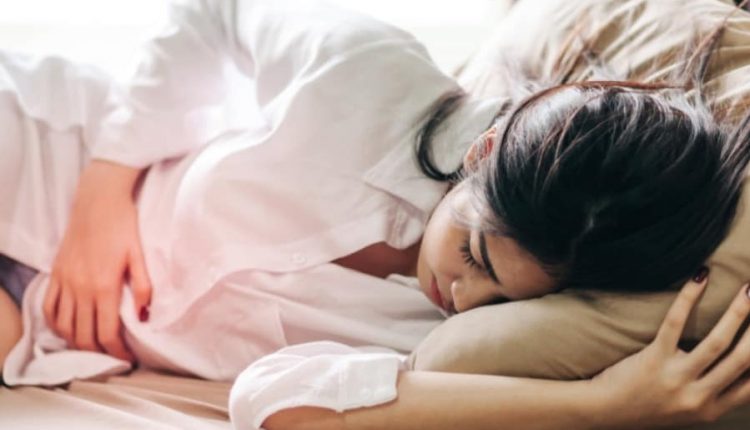
Female cystitis, how to deal with it: urological perspectives
Cystitis, a mainly female problem: about 40% of Italian women have had a urinary tract infection at least once in their life
We know that males are less affected by these problems; for example, chronic and painful inflammations of the bladder wall, syndromes also known as interstitial cystitis, mainly affect women, in a ratio of 5 to 1 compared to men.
What are the symptoms of cystitis?
The Italian Society of Urology (SIU) recently sounded an alarm in this regard, reminding us that cystitis can mainly present with these symptoms
- exaggerated frequency and urgency when urinating
- severe burning and pain while urinating,
- feeling of not being able to empty the bladder completely,
- cloudy, foul-smelling urine sometimes with traces of blood,
- feeling of heaviness and discomfort in the lower abdomen.
If this happens it is necessary to contact the expert in the field, i.e. the urologist, only he can indicate the most suitable diagnostic and therapeutic path to solve the problem, which sometimes also involves small interventions such as indicating a new lifestyle.
Why is cystitis a disease that mainly affects women?
The first cause is anatomical: in fact, in women the urethra is shorter than in men and therefore micro-organisms can more easily reach the bladder, then the urinary tract and the last tract of the intestine with its bacteria are very close and can thus, in particular situations, enter the bladder.
If one is constipated or has irritable bowel syndrome: in these cases the same microorganisms can multiply and pass more easily from the intestinal tract to the urinary tract.
Also, if the woman is in menopause, the lack of oestrogen alters the pH of the mucous membranes and this favours infections.
Finally, improper intimate hygiene, such as too aggressive soaps, alters the defences and vaginal and urinary tract infections become more likely.
Therapy and prevention of cystitis
How to deal with and solve this complex problem?
The first golden rule both in episodic cystitis and in the prevention of a urinary tract infection is to drink plenty of water, about one or two litres a day outside meals, if you have no other clinical problems.
If there is the urge to urinate, it is good to go along with it so as to avoid urine stagnation in the bladder, which can facilitate the proliferation of various microorganisms.
Other recommendations:
- Urinate before and after penetrative sexual intercourse.
- Use neutral pH and non-aggressive intimate cleansers.
- Check for constipation, a potential ally of cystitis.
Italian urologists also recommend eating a couple of kiwis a day: these seem to regulate the bowel and are rich in vitamin C, which reduces the alkalinity of urine.
Female cystitis, which drug therapies should be used?
Urologists warn against the unscrupulous use of antibiotics.
You should first consult your urologist and, on his advice, have a culture evaluation with an antibiogram; this is to avoid antibiotic resistance, the phenomenon whereby bacteria develop an ability to survive the action of these drugs.
If the antibiogram shows a high bacterial load, the urologist will always decide on a specific antibiotic therapy on the basis of the results obtained.
Read Also
Emergency Live Even More…Live: Download The New Free App Of Your Newspaper For IOS And Android
Cystitis: Symptoms, Causes And Remedies
Cystitis, Antibiotics Are Not Always Necessary: We Discover Non-Antibiotic Prophylaxis
Polycystic Ovary Syndrome: Signs, Symptoms And Treatment
How Does Cystitis Manifest Itself?
Cervical Cancer: The Importance Of Prevention
Vulvodynia: What Are The Symptoms And How To Treat It
What Is Vulvodynia? Symptoms, Diagnosis And Treatment: Talk To The Expert
Accumulation Of Fluid In The Peritoneal Cavity: Possible Causes And Symptoms Of Ascites
What’s Causing Your Abdominal Pain And How To Treat It
Pelvic Varicocele: What It Is And How To Recognise The Symptoms
Can Endometriosis Cause Infertility?
Transvaginal Ultrasound: How It Works And Why It Is Important
Candida Albicans And Other Forms Of Vaginitis: Symptoms, Causes And Treatment
What Is Vulvovaginitis? Symptoms, Diagnosis And Treatment
Urinary Tract Infections: Symptoms And Diagnosis Of Cystitis
Cervical Cancer Screening, THINPrep And Pap Test: What Is The Difference?
Diagnostic And Operative Hysteroscopy: When Is It Necessary?
Techniques And Instruments For Performing Hysteroscopy
The Use Of Outpatient Hysteroscopy For Early Diagnosis
Utero-Vaginal Prolapse: What Is The Indicated Treatment?
Pelvic Floor Dysfunction: What It Is And How To Treat It
Pelvic Floor Dysfunction: Risk Factors
Salpingitis: Causes And Complications Of This Fallopian Tube Inflammation
Hysterosalpingography: Preparation And Usefulness Of The Examination
Gynaecological Cancers: What To Know To Prevent Them
Infections Of The Bladder Mucosa: Cystitis



